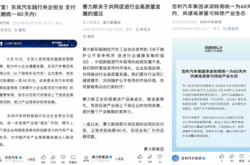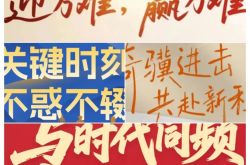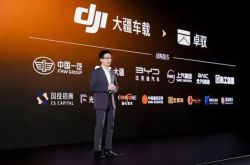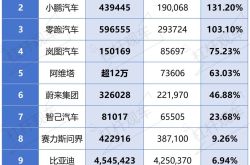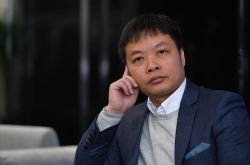How can China counter the EU's high tariffs on Chinese electric vehicles?
![]() 09/09 2024
09/09 2024
![]() 624
624
01
Does the EU's imposition of high tariffs on Chinese electric vehicles mean China has no countermeasures?
In 2023, over 80 million vehicles were sold globally,
Including:
The US auto market sold 15.457 million vehicles, up 12.5% year-on-year.
The European market reached 12.848 million vehicles, up 13.8% year-on-year.
The Indian market sold 4.102 million vehicles, up 8.2% year-on-year.
The Japanese market sold 3.993 million vehicles, up 15.8% year-on-year.
The ASEAN market experienced a slight decline, selling 3.355 million vehicles, down 2.0% year-on-year.
The Brazilian market sold 2.180 million vehicles, up 10.9% year-on-year.
The Korean market sold 1.458 million vehicles, up 4.9% year-on-year.
The Mexican market performed strongly, selling 1.360 million vehicles, up 24.3% year-on-year.
And what about China?
Exceeding 26 million vehicles sold.
It's not difficult to see that the global automotive market essentially comprises three major markets: China, the US, and Europe.
First, let's talk about the US market. Can Chinese cars be sold in the US market?
Dream on. The US auto market is the most closed market out there, with 10,086 ways to make you go bankrupt.
For example, the Volkswagen emissions scandal, the Toyota airbag recall... Of course, Toyota and Hyundai are doing well in the US now, but they're still being fattened up, not yet ready for slaughter.
Next, the European market. Can Chinese cars be sold in the European market?
Attempts were made a decade ago, but they were driven back by crash tests and emission standards.
Now, with the help of quality and zero emissions, new energy vehicles are making a comeback, prompting the imposition of tariffs. Actually, tariffs are not a big deal; what's more concerning is the upcoming 'New Battery Law,' which could be a game-changer.
Now, let's talk about the Chinese market. Can European, American, Japanese, and Korean cars be sold in China?
Joint ventures were not allowed to exceed a 50% shareholding ratio until Tesla broke the mold.
What does that mean?
The major auto markets are all exclusive. Technology is welcome, but there are always barriers to importing complete vehicles.
On the one hand, countries need to exchange interests. Buy some Airbus planes and some wine, and tariffs can be reduced. On the other hand, companies have their own considerations.
So it's a foregone conclusion that the EU will impose tariffs on Chinese cars, and even automakers and battery manufacturers are already prepared.
CATL is building factories in Hungary and Germany; BYD is building in Turkey and Hungary; Linglong Tire is building in Serbia...
Just like EU, Japanese, and Korean automakers building factories in China, the goal is to bypass various bans.
Getting back to the original question, this is actually the norm, an inevitable phenomenon of national interest exchanges (the tire and photovoltaic industries have been subject to anti-dumping and countervailing measures for decades).
The EU's imposition of high tariffs on China can even be seen as a countermeasure to the high tariffs imposed on EU cars by China over the past few decades.
How can China counter this? After all, you still need to sell your products in China, right? Let's negotiate terms!
Volkswagen came to China and acquired JAC Motor, Mercedes-Benz sold itself to Beijing Automotive Group and Geely, and BMW invested more in Shenyang...
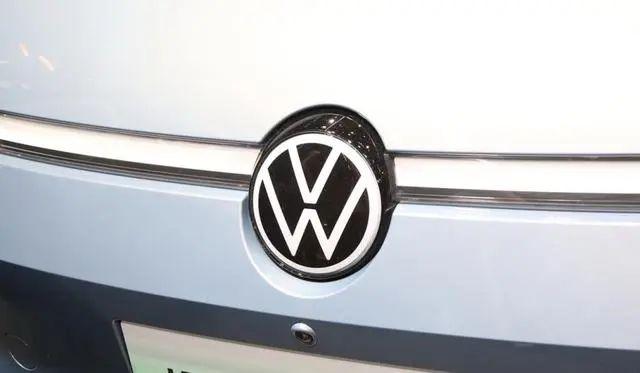
That's countering.
02
What would happen if Apple and Tencent blocked each other?
Apple and Tencent actually have a very friendly cooperative relationship, although they have had minor disputes over platform fees for a long time.
Apple provides many exclusive resources to WeChat, and WeChat runs very smoothly on iOS.
A similar dispute actually occurred in 2017.
At that time, WeChat introduced a reward code, which Apple considered an in-app purchase subject to a fee. So while negotiations were ongoing, WeChat removed the reward code feature.
After the negotiations were settled, WeChat reintroduced the reward code feature.
This time is similar; it's impossible for them to block each other. It's just a matter of negotiating a fee structure acceptable to both parties or exempting certain actions from fees.
The game of that year:
On April 19, 2017, Tencent's WeChat team announced that due to new Apple regulations, the reward function on the WeChat public platform for iOS would be disabled, while the function would remain available on Android and other versions.
On June 11, Apple officially updated the App Store Review Guidelines on its developer website. The new guidelines stated that iOS apps could use in-app purchases to allow consumers to tip digital content providers. Related apps must not use other buttons, external links, or other methods to allow consumers to use payment channels outside of Apple.
On July 18, several Chinese internet company executives exclusively revealed to The Paper that Apple was considering allowing users to tip original authors without forcing them to use the in-app purchase mechanism in the App Store.
On September 18, Apple updated its App Store guidelines, specifically addressing tipping and other cash gift behaviors. The revised policy stated that individual users could gift another person without using in-app purchases. However, app developers were prohibited from taking a cut of cash tips and were required to pass on all tips to content creators in full.
On October 19, WeChat relaunched the reward code feature in its updated 6.5.19 iOS version. Although the principle is similar to that of payment codes, WeChat gave the reward code a different design, positioning it as a gift rather than a general payment behavior.


